Local community groups in Bali are making their voices heard over concerns that the new Mengwi-Gilimanuk Toll Road will devastate rural livelihoods. Groups like the People’s Struggle Democratic Front are speaking up as construction of the new toll road is now well underway.
Despite raising their concerns during consultation, the building of the new transportation route is full steam ahead. Groups like People’s Struggle Democratic Front have gathered evidence that suggests the toll road will directly impact Bali’s food security.
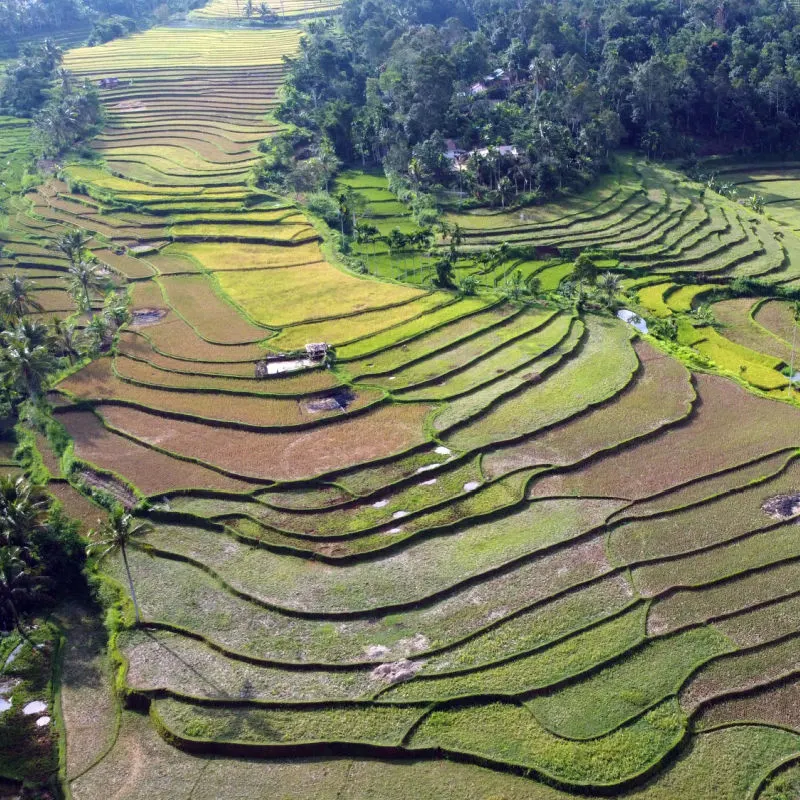
The People’s Struggle Democratic Front has told reporters that the Mengwi-Gilimanuk Toll Road will eliminate more than 480 hectares of rice paddies along the proposed route. Of these 480 hectares, all are currently viable for production and play a direct role in the food security and livelihoods of thousands of people.
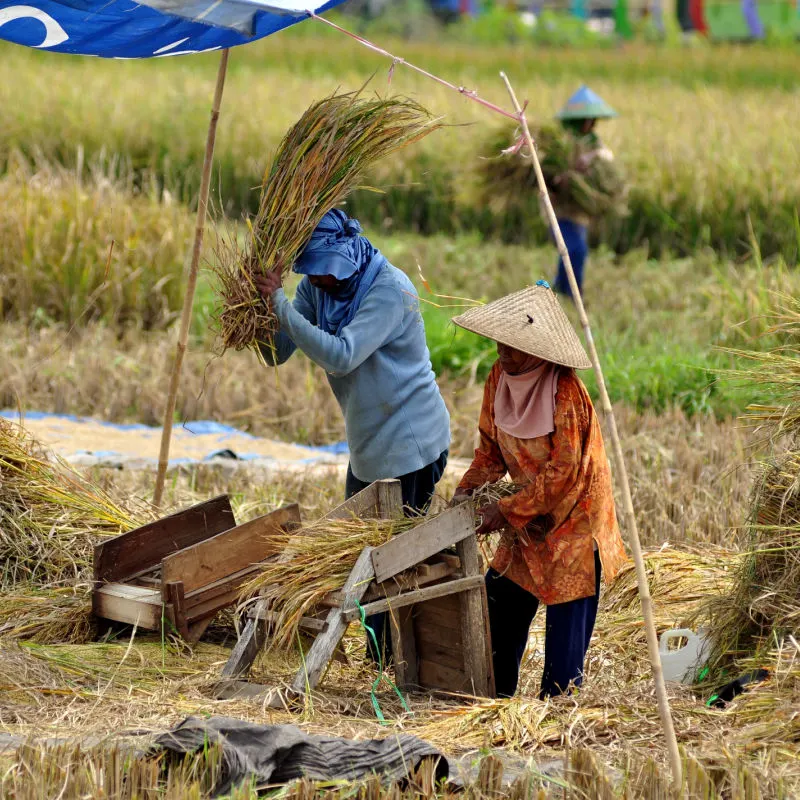
The Secretary General of Frontier Bali, Anak Agung Surya Sentana, told reporters on Monday 31st October, ‘If calculated 1 hectare of land [as a] ricefield [produces] at least 6 tons of rice, so the Mengwi-Gilimanuk toll road construction project which cuts across 480.54 hectares of rice fields reduces rice production in Bali by 2,883 tons’. He claims that the decline in rice production will have an immediate and tangible impact on communities in Bali.
Sentana continued to explain, ‘This is contrary to the mission of the Governor of Bali, namely to ensure that food needs are met in sufficient quantity and quality for the life of Balinese Krama, as well as to realize food independence, increase added value and agricultural competitiveness, and improve the welfare of farmers’.
Top 5 Travel Insurance Plans For 2023 Starting At $10 Per Week
Easily Earn Points For Free Travel
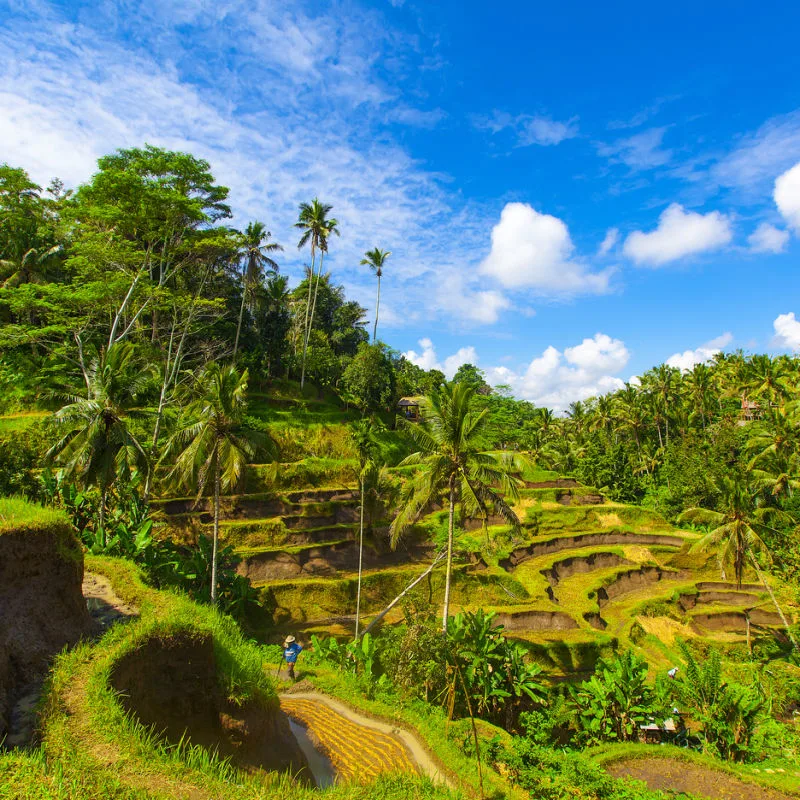
He outrightly called on government officials ‘Don’t let this project actually worsen food security in Bali’. He and the People’s Struggle Frontier are also challenging the government to explain why the initial data in the plans for the toll road state that 200 hectares of rice paddies would be converted rather than the actual 480ha.
Sentana said ‘It is important to clarify that based on a study by Prof. Windia, an agricultural expert, Bali is currently experiencing a rice deficit of 100 thousand tons of rice per year…the existence of 480.54 hectares of paddy fields located in 98 Subak [farming groups] will be affected by the toll route will add to the poor disaster mitigation in Bali and inevitably, Bali will have the potential to be hit by a greater disaster than the floods and landslides that have occurred recently’.
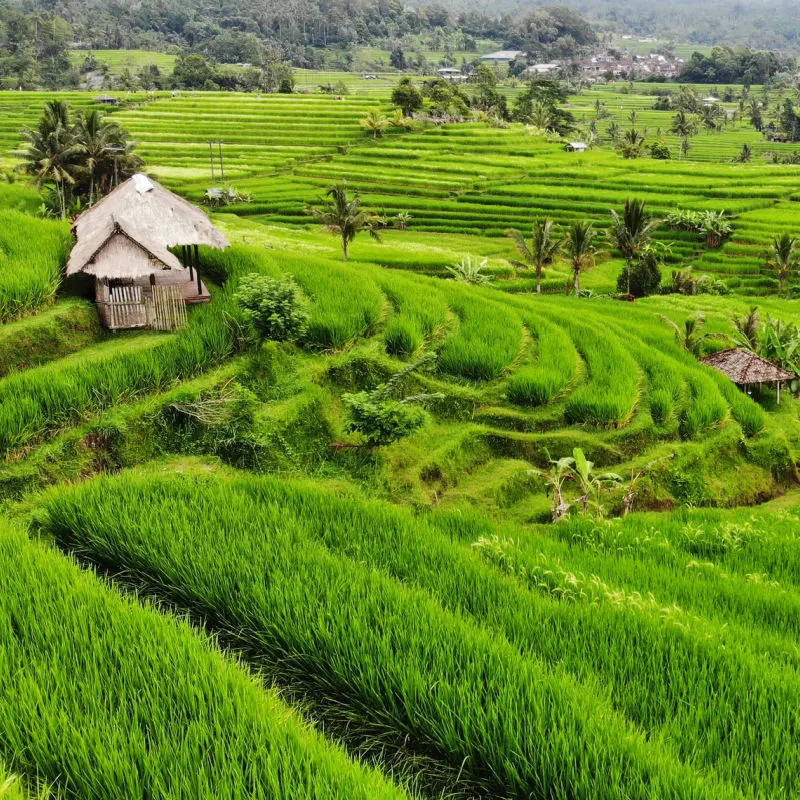
Other ecological experts in Bali have affirmed his concern. Environmental leaders from the Indonesian Forum for the Environment of Bali Province (WALHI) revealed research in late October that confirmed that recent natural disasters were exacerbated by the conversion of agricultural land for tourism and residential and infrastructural development.
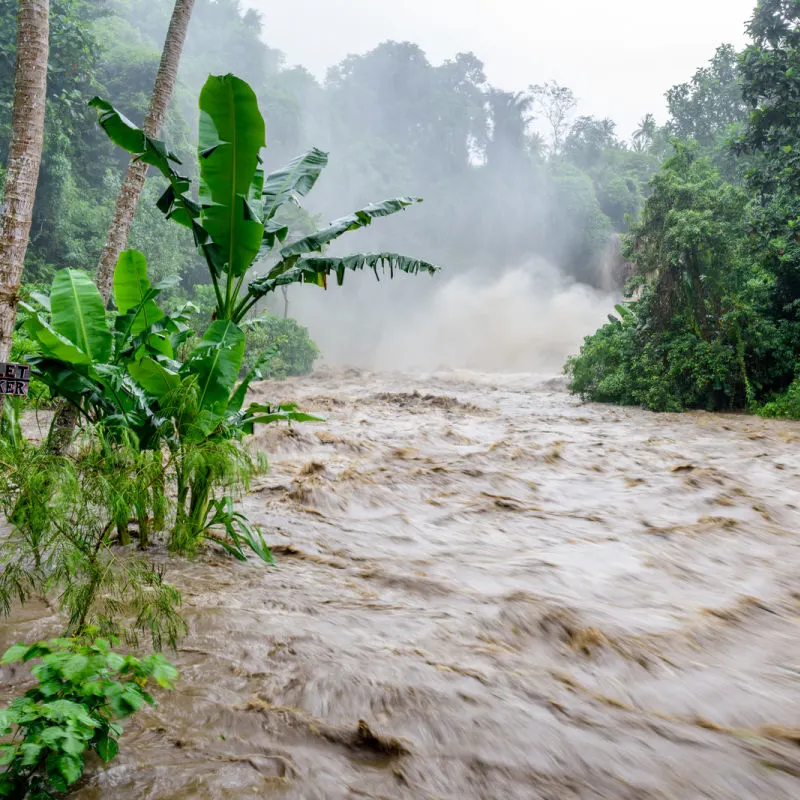
The Director of WALHI Bali, Made Krisna Dinata, shared damning statements with reporters on Tuesday, 18th October, following heavy storms, landslides, and flash flooding across the island. He explained, ‘The natural disasters that hit Bali are caused by the domino effect of climate change due to the increase in the earth’s surface temperature. Then welcome the conversion of land functions due to massive infrastructure development in Bali’.
WALHI also cited data from Prof Windia that shows that between 2014 and 2018, Bali lost more than 11,440 hectares of rice paddies in the research area alone. This amounts to a loss of over 34 million tonnes worth of water-carrying capacity in just four years.
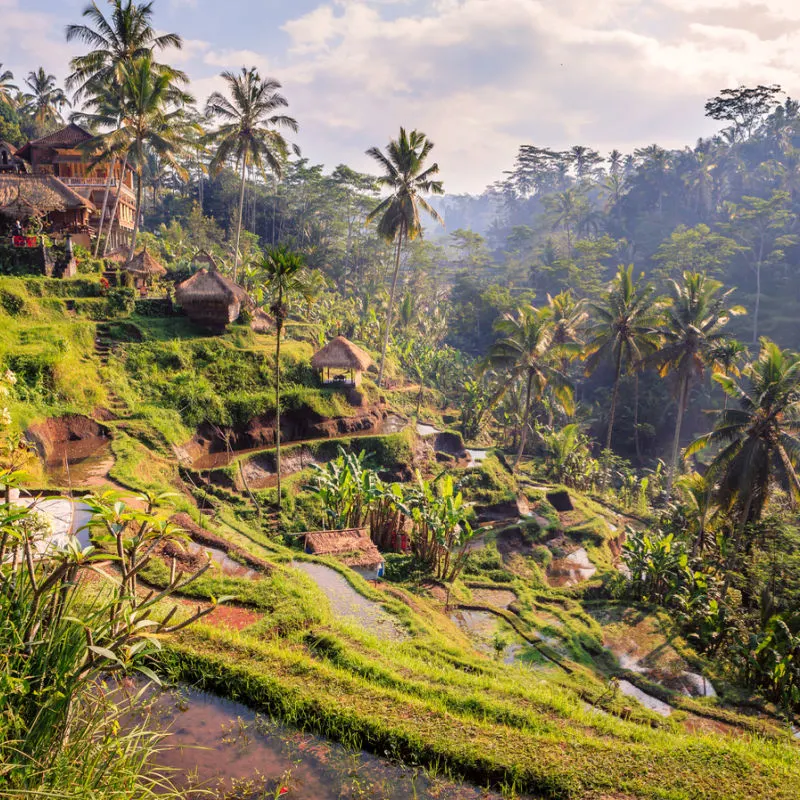
Like the WALHI, the People’s Struggle Democratic Front is urgently calling on Bali’s Governor, Wayan Koster, to immediately stop the construction of this project which evidence suggests has the potential to trigger more serious natural disasters and food insecurity.
Speaking at a celebratory event on Thursday, 22nd September, Governor Koster confirmed that he was taking food security seriously and prioritizing positive development on the island. Though his stance differs from that of many local agricultural and environmental groups.
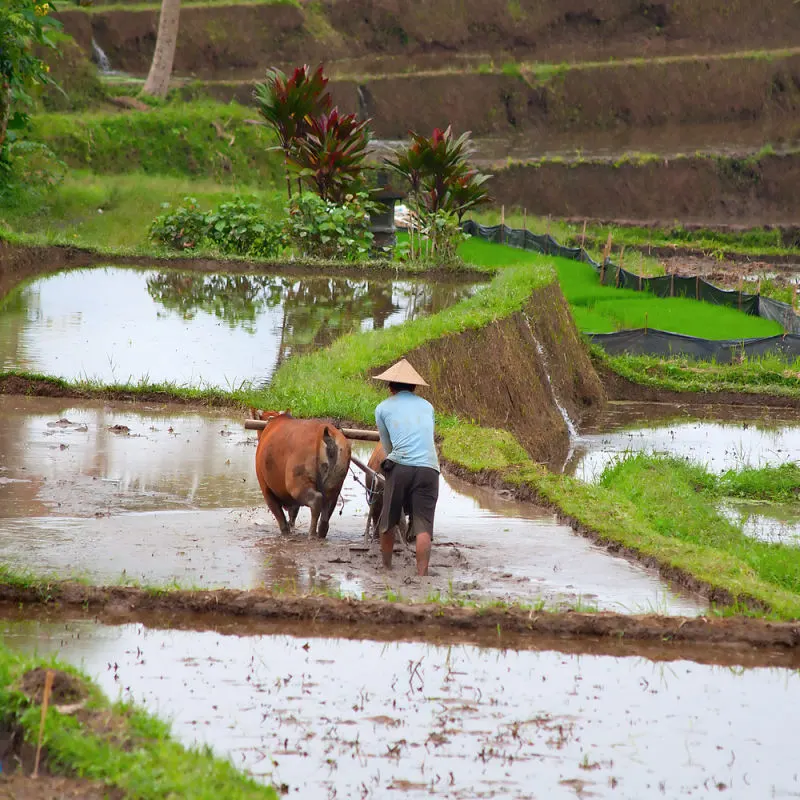
Koster said, ‘the solution to building tourism while maintaining food security is to build monumental and fundamental infrastructure, as well as tourism that [promotes] local agricultural production’, by which he was referencing massive projects like the Mengwi-Gilimanuk Toll Road.
As parts of East Bali regularly face water scarcity, and parts of West Bali experience devastating flash flooding, Governor Koster is under increasing pressure from local people to ensure that the ‘monumental infrastructure’ projects realize their potential almost immediately, else communities across the island could have serious consequences to live with.
Remove All Ads & Unlock All Articles… Sign up for The Bali Sun Premium

Plan Your Bali Holiday:
Book The Best English Speaking Drivers For Airport Transfers & Tours
Choose From Thousands of Bali Hotels, Resorts, and Hostels with Free Cancellation On Most Properties
Book Cheap Flights To Bali
Don’t Forget Travel Insurance That Covers Medical Expenses In Bali
For the latest Bali News & Debate Join our Facebook Community
SUBSCRIBE TO NEW POSTS
Enter your email address to subscribe to The Bali Sun’s latest breaking news, straight to your inbox.

Firechef
Wednesday 2nd of November 2022
No problem about food security, just eat the tourists.
Jimbo
Wednesday 2nd of November 2022
It's far from over. The goal of the central government is to turn Baaalii into a concrete amusement/cultural park, were bus tours stop at selected locations (the rice field, the traditional village, the temple, the surf spot, etc...). Don't forget the "10 new Bali" program designed to replace this utterly fucked up island with some yet unspoiled areas of Indonesia. Well you can't have it all when development isn't planned or managed carefully. Bali is a prime example of an environmental/socioeconomic disaster. Greed has a cost and the bill is heavy.
BaliRob
Saturday 5th of November 2022
@Jimbo,
Well said Jimbo - most of those who control our futures here do not seem to realise that it took LESS THAN 30 YEARS for Bali to completely change its total being.
Remember the butterflies over Sanur ?
Exp
Wednesday 2nd of November 2022
So an area of 4.8km2 (size approx 80% of Canggu district) will be lost to the new toll road.
Back in March it was reported in the news that Tabanan officials suggested to convert 12.5km2 of "unproductive" rice field land into tourist zone.
Looks like the risk for food security is not shared among all Bali authorities as rice fields are lost daily. Maybe because value of land for residential/business is around 100 times compared to a rice field?
Karen North
Wednesday 2nd of November 2022
The hills rising up from Singaraja, Lovina, Sererit etc are covered in clove trees. The government made the people there plant the trees in what was once rice fields. They were told cloves makes more money than rice. But rice was what had fed them. This year's clove crop was a disaster. No income now to buy the rice they once grew. Return the water ways and have the villagers grow rice again. Even just the 100,000 tons needed to make Bali self sufficient.